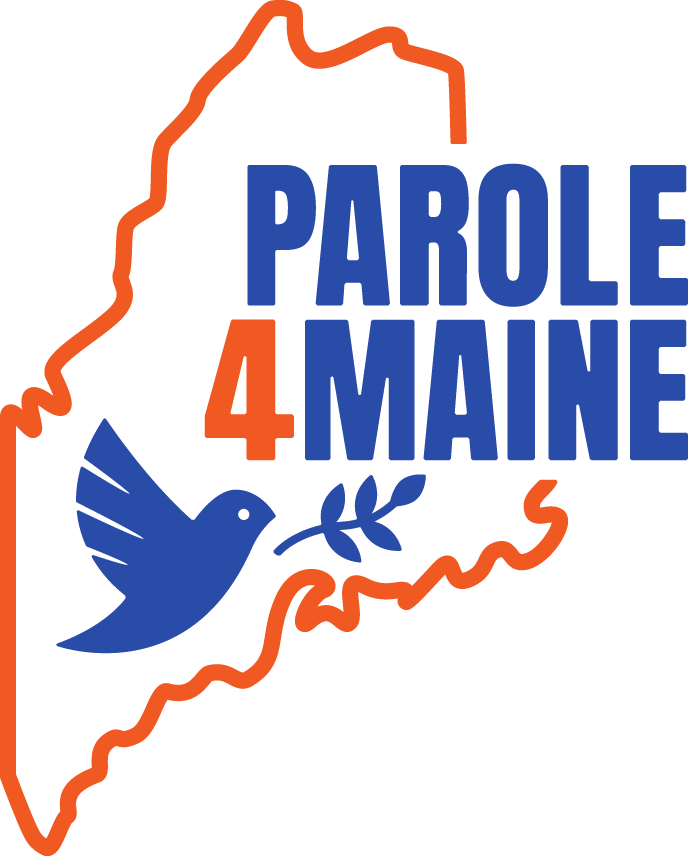PAROLE 101
Parole is a rehabilitative transition to public life where a panel of experts determines whether an incarcerated person can finish their sentence under community supervision from the Department of Corrections. If granted parole, the person isn’t completely released from the corrections system — they still have rules to follow and a parole officer to check-in with regularly — but they can return to their homes, jobs and loved ones, while getting support to make their transition back to community successful.
PAROLE PROCESS
Historically, parole was used together with indeterminate sentencing, where judges sentenced people to an indeterminate amount of time in prison, including a minimum and a maximum number of years. People became eligible for parole review when they reached the minimum of this range.
EXAMPLE: Ryan commits a crime and is given a parole-eligible sentence of 15-20 years. Once he reaches 15 years, Ryan becomes parole-eligible, at which point he goes before the parole board members who determine whether or not he’s ready to transition to community supervision. If granted, he stays on parole for a specified amount of time (up to 5 years until he’s served 20 years cumulative). If denied, he has subsequent parole hearings until he’s granted parole or maxes out his sentence (20 years).
WHY PAROLE?
Parole helps shift our system from caging people to rehabilitating people. Not only does a fair parole system periodically evaluate incarcerated individuals and guard against decades of costly and senseless over-incarceration, it provides incarcerated individuals with clear standards for rehabilitation and incentive to achieve those standards.
PAROLE IN THE UNITED STATES
Maine is an outlier when it comes to parole, which is a widely used, commonsense tool in our country. The vast majority of states, 34 total, have parole available to those who commit crimes today, while 16 states, including Maine, only have parole for people who committed their crimes prior to the year it was abolished. Over 800,000 people were under parole supervision at the end of 2020, according to the US Department of Justice.
Track updates and read the bill:
AN ACT TO SUPPORT REENTRY AND REINTEGRATION INTO THE COMMUNITY
MAINE WAS THE 1ST OF 17 STATES THAT ABOLISHED DISCRETIONARY PAROLE. THE STATE HAS BEEN WITHOUT PAROLE SINCE 1976.
There has been no improvement to public safety since Maine abolished parole in 1976.
Thousands of people—a disproportionate number of whom are people of color—have been ordered to spend decades in prison, regardless of their rehabilitation, with no chance at a review process. Rehabilitating community members makes us safer, not flat sentences. People granted parole are 36 percent less likely to return to prison compared to those released with zero supervision.
Has any state restored parole?
YES! Mississippi abolished parole in 1995 and, over the next decade, the incarcerated population swelled, prisons became even more overcrowded, and budgetary needs to pay for so many incarcerated people strained the state budget. By 2008, Mississippi had restored parole and still has it today. Maine joins others in trying to restore parole. Illinois, the fourth state to abolish parole in 1978, has a bill before its Legislature that would restore parole. Parole restoration bills have also been discussed in Florida and Virginia.
Parole vs. Supervised Community Confinement Program (SCCP)
SCCP is a program in which incarcerated individuals can be evaluated against a criteria created by the Maine Department of Corrections. If they meet this criteria, an incarcerated individual may apply to serve the final 24–30 months of their unsuspended sentence in a residential setting. However, even those individuals who meet the criteria generally serve much less time on community supervision than the 24–30 months outlined in the SCCP. The differences between parole and SCCP become more pronounced the longer a person’s sentence becomes. If someone is serving 30 years, their rehabilitation status can be reviewed after they serve a decade in prison via parole eligibility. That same person doesn’t become SCCP eligible until they serve 27.5 years, minus good time accrued.
bring back parole
CONTACT YOUR STATE SENATOR + REPRESENTATIVE


